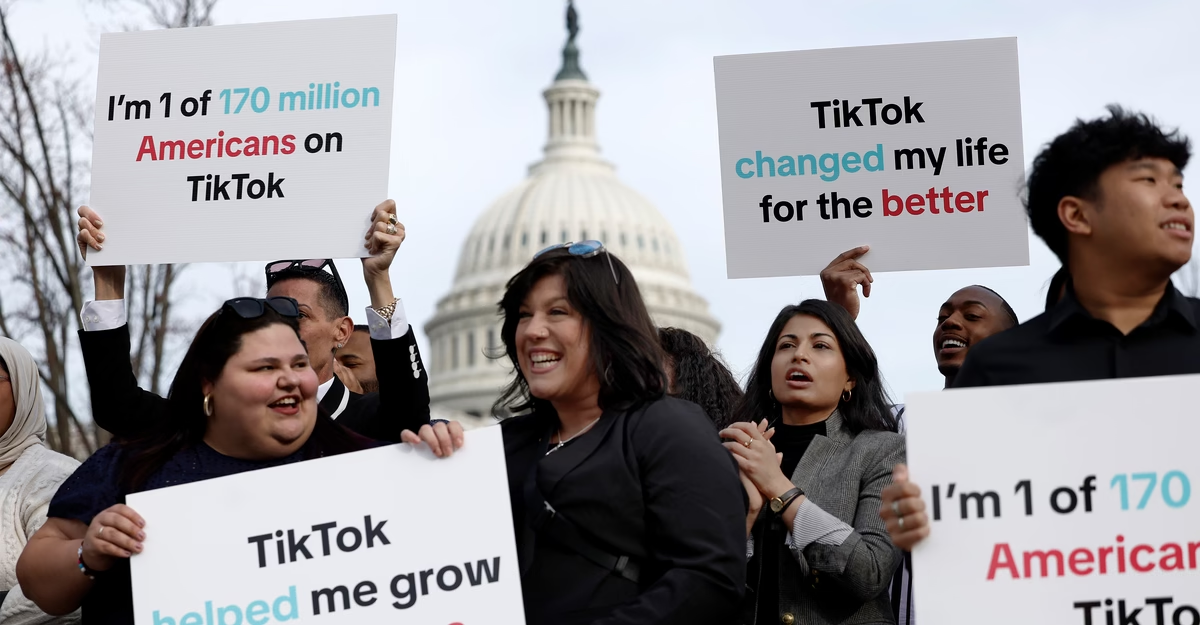TikTok, the widely popular short-form video platform owned by China’s ByteDance, has experienced remarkable growth in the United States, amassing over 170 million users. However, its future in the U.S. remains uncertain due to ongoing national security concerns, legal challenges, and potential ownership changes.

National Security Concerns and Legislative Actions
Since 2020, U.S. officials have expressed apprehensions about TikTok’s data practices, fearing that user information could be accessed by the Chinese government. These concerns culminated in legislative actions, including a law passed in April 2024 requiring ByteDance to divest its U.S. TikTok operations by January 19, 2025, or face a ban. The Supreme Court upheld this law, emphasizing the necessity to protect national security interests.
ByteDance’s Legal Response
In response to the divestiture mandate, ByteDance challenged the law, arguing it violated the First Amendment. However, the Supreme Court upheld the legislation, reinforcing the government’s stance on mitigating potential security risks associated with foreign-owned applications.
Prospective Buyers and Government Involvement
The impending divestiture attracted interest from various U.S. entities. Notably, Oracle emerged as a leading candidate, proposing to oversee American TikTok user data to prevent potential access by the Chinese government. The White House, under Vice President JD Vance’s direction, played an active role in these negotiations, marking an unprecedented level of government involvement in such corporate transactions.
Other potential buyers included investment firms like Susquehanna International Group, General Atlantic, Kohlberg Kravis Roberts, Sequoia Capital, and a consortium led by Frank McCourt, Kevin O’Leary, and Alexis Ohanian. The valuation of TikTok’s U.S. operations ranged between $50 billion to $100 billion, depending on whether the platform’s core algorithm was included in the sale.
Recent Developments and Temporary Bans
On January 19, 2025, TikTok faced a temporary ban in the U.S. after failing to meet the divestiture deadline. The platform briefly went dark, causing significant disruption among its user base. However, President Donald Trump issued an executive order delaying the enforcement of the ban by 75 days, allowing TikTok to restore services while negotiations continued.
Notable Quotations from Prominent Figures
President Donald Trump:
-
“I guess I have a particular affection for TikTok, even though it wasn’t initially the case. I’ve used TikTok and garnered support from younger voters.”
-
“There are four groups bidding for TikTok, and all are good options.”
-
“We have no other choice but to save TikTok because many jobs depend on this application.”
Elon Musk:
-
“I have not made any offer to buy TikTok. I also have no plans if I own this application.”
-
“Is TikTok destroying civilization? Some people think so. Or maybe it’s social media in general.”
Current Status and Future Outlook
As of March 18, 2025, TikTok’s future in the U.S. remains in flux. The extended deadline is approaching, and while discussions with potential buyers are ongoing, no definitive agreement has been reached. The platform continues to operate, but the looming possibility of a ban persists if a satisfactory resolution is not achieved.
Frequently Asked Questions (FAQs)
1. Why is TikTok’s presence in the U.S. under scrutiny?
U.S. officials are concerned that TikTok’s parent company, ByteDance, could be compelled by the Chinese government to share user data, posing national security risks.
2. What legal actions have been taken against TikTok?
In April 2024, a law was enacted requiring ByteDance to sell its U.S. TikTok operations by January 19, 2025, or face a ban. The Supreme Court upheld this law, emphasizing national security considerations.
3. Who are the potential buyers of TikTok’s U.S. operations?
Prospective buyers include Oracle, investment firms like Susquehanna International Group, General Atlantic, Kohlberg Kravis Roberts, Sequoia Capital, and a consortium led by Frank McCourt, Kevin O’Leary, and Alexis Ohanian.
4. How has the U.S. government been involved in the sale negotiations?
The White House, particularly Vice President JD Vance, has taken an active role in the negotiations, an unprecedented move in such corporate transactions.
5. What is the current status of TikTok in the U.S.?
As of March 18, 2025, TikTok continues to operate in the U.S. under an extended deadline for ByteDance to divest its U.S. operations. If a sale is not finalized by the new deadline, the platform faces a potential ban.
6. What are the implications if TikTok is banned in the U.S.?
A ban would prevent U.S. users from accessing TikTok, impacting over 170 million users and disrupting the platform’s creator economy.
7. How has TikTok responded to these challenges?
TikTok has engaged in legal battles to challenge the divestiture mandate and continues to negotiate with potential U.S. buyers to comply with regulatory requirements.
8. What are the concerns regarding Oracle’s potential involvement?
While Oracle proposes to oversee U.S. user data to mitigate security risks, some lawmakers express skepticism about its ability to fully safeguard the data from potential foreign access.
9. How might TikTok’s algorithm factor into the sale negotiations?
The inclusion of TikTok’s core algorithm in the sale significantly









